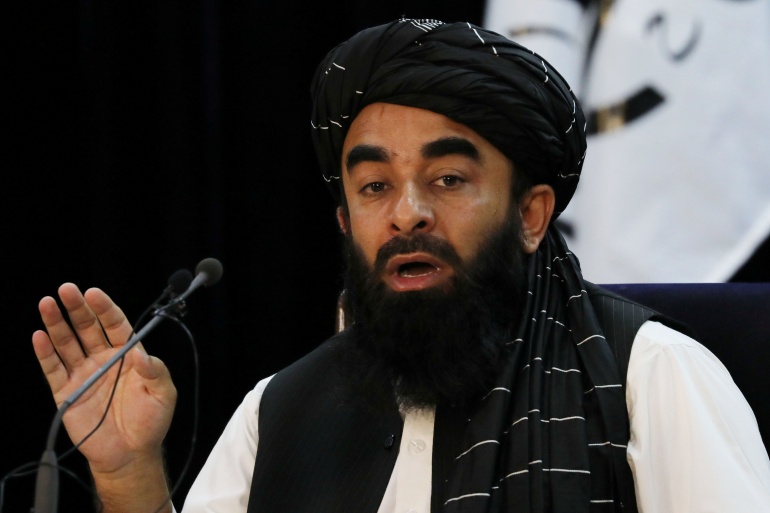On September 21, local time, the Taliban government appointed the remaining cabinet members and expanded the temporary cabinet. But the government still has not been able to appoint any women to leadership positions. Earlier this month, this all-male cabinet lineup triggered strong protests from the international community, and this appointment further strengthened the Taliban’s hardline line.
The international community warned that it will be judged by the actions of the Taliban, and the recognition of the Taliban government will be linked to its treatment of women and ethnic minorities in the country. In the late 1990s, the Taliban banned women from entering schools, workplaces and public life.
Taliban government spokesperson Zabihara Mujahid defended the newly added cabinet members at a press conference held on the 21st, saying that the newly added cabinet members include members of ethnic minorities such as Hazaras, and they may increase in the future. Female members.
Mujahid is dissatisfied with the conditions for obtaining international recognition and sees no reason to refuse to recognize his government.
He also said, “The United Nations has the responsibility to recognize our government, and it also has the responsibility to allow other countries including Europe, Asia and Islamic countries to establish diplomatic relations with us.”
He also took the time to announce a number of personnel appointments for the Taliban caretaker government, including candidates for ministers and deputy ministers.
These appointments include personnel from Panjshir and Baghlan provinces. Panjshir is currently the base camp of the Afghan National Resistance Front, the only large-scale campaign that attempts to prevent the Taliban from ruling the country.
Continue to call for inclusiveness
In the past month, there have also been small-scale resistance operations in parts of Baghlan Province. The Taliban pointed out that three new positions will be allocated to personnel from Panjshir, Baghlan, and Sarpur, and there are quite a few Tajiks and Uzbeks living in these three provinces. The Taliban’s move seems to be It is sending a signal about the inclusiveness of the new government.
The Taliban have restricted the cabinet to a provisional government and hinted that reforms are still possible, but they have not clarified whether elections will be held.
Al Jazeera reporter Hashim Ahbara reported from Kabul that the newly announced appointment is unlikely to win international recognition.
He also pointed out, “The international community stated that we want a strong interim government and that this government must represent different ethnic groups, including Hazaras, Uzbeks, and Tajiks. It also requires members of the former regime to be in the interim government. Hold some important positions.”
The reporter pointed out that “the international community hopes that the Taliban will make it clear that when drafting a new constitution and a new electoral law, representatives in the interim government will be able to represent women and ethnic minorities.”

He believes that “the international community is far from certain whether this interim government can meet the demands of the Afghan people.”
Neighboring Pakistan is also one of the countries calling for the Taliban to establish an inclusive government.
Earlier this week, Pakistan’s Prime Minister Imran Khan tweeted that he had “initiated a dialogue with the Taliban and hoped that the other party could build an Afghanistan that embraces Tajiks, Hazaras and Uzbeks. government”.
He added in his comments that an inclusive government would guarantee a “peaceful and stable Afghanistan”, but related comments were rejected by the Taliban.
According to the Afghan Independent News Agency (Pajhwok), although Mujahid did not comment on these remarks, other Taliban officials said, “We will reserve the right to have our own unique system.”
Mujahid was also asked on the 21st about recent restrictions imposed on women, including a decision to temporarily not allow girls in grades 6 to 12 to return to the classroom.
In this regard, Mujahid emphasized that this is only a temporary decision, “and their decision to go to school will be announced soon.”
Mujahid said that plans are being made to allow them to return to school, but he did not elaborate on this. Currently, boys in grades 6 to 12 have returned to school at the weekend.
.
